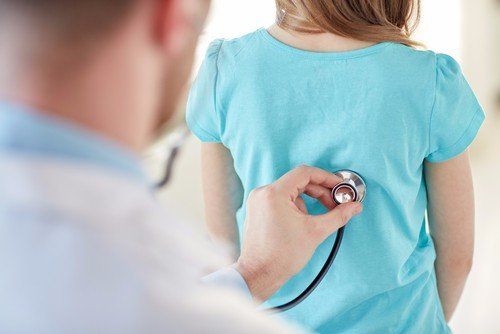Improving Lung Health Through Oral Healthcare
Keeping up with your oral health not only benefits your teeth but also
the health of your lungs. Bacteria from the oral cavity that is not taken care
of by a strong oral healthcare routine can eventually work down into the lungs.
Once this occurs, respiratory problems can possibly develop over time or other chronic
lung conditions can become agitated if left treated.
To help prevent poor lung health, stay on top of your oral healthcare
regime and even practice breathing exercises. Bacteria from poor oral health
can exacerbate the symptoms of diseases like emphysema, chronic obstructive
pulmonary disease (COPD), and pneumonia. The University of Maryland Medical
Center even discovered a sizable link between emphysema and periodontal
disease. Over time, these lung conditions can become more severe without proper
care.
Lifestyle Changes
Slight changes in lifestyle can go a long way in improving lung health,
including drinking more fluids regularly, specifically water, to stay hydrated.
Well-hydrated lungs have thin mucosal linings that help lungs function better.
When you are dehydrated, your lungs have a hard time clearing on their own.
Physical activity like swimming or walking are also great for lung
health. This makes you breathe deeper and loosens any debris or mucus left in the
lungs—even a deep-hearted laugh can help. Jennifer M. Ryan, a physical
therapist for Rush University Medical Center (RUMC) explains that laughter can
allow fresh air into more areas of the lungs and force out “stale air.”
Helpful Exercises
Simple breathing exercises are great ways to improve lung health. They
can help open your lungs, improve their capacity, and reduce health problems.
The key is to breathe through the diaphragm. As you breathe in, expand your
stomach, then your lower ribs, and then your upper ribs.
Reversing the process, exhale and allow your upper ribs to fall first.
Then, contract your belly inward and up to force as much air out as you can manage.
To make sure you're going at an even pace, count. You want to inhale and exhale
for the same amount of time. To improve your lung capacity further, try to
increase the length of time for your inhaling and exhaling without making yourself
uncomfortable.
Healthier Habits
Dietary habits are also crucial for lung health. Foods that are great
for your teeth, including fruits, vegetables, dairy, sugarless gum, as well as
green and black tea, can help the lungs too. According to the American Lung
Association, these same things can also help strengthen the lungs’ respiratory
muscles. This also includes whole grain bread and pasta, vegetables and fruit,
and solid protein sources like eggs, milk, cheese, meat, poultry, fish, dried
beans, nuts, and peas.
Minor changes in your habits can go far when it comes to improving oral
and lung health. Brushing twice a day with a fluoride toothpaste helps
tremendously for reducing bacteria that can also affect the lungs. An
antibacterial mouthwash can also wash away harmful bacteria that may linger.
Whether it’s for your lungs or your teeth, your body will appreciate it.
Did you know that you can save up to 20 percent off your
dental bills with our discount dental plans
? We offer individual,
family, and employee plans for small business owners. To learn more, click here.
Photo via Shutterstock.com











